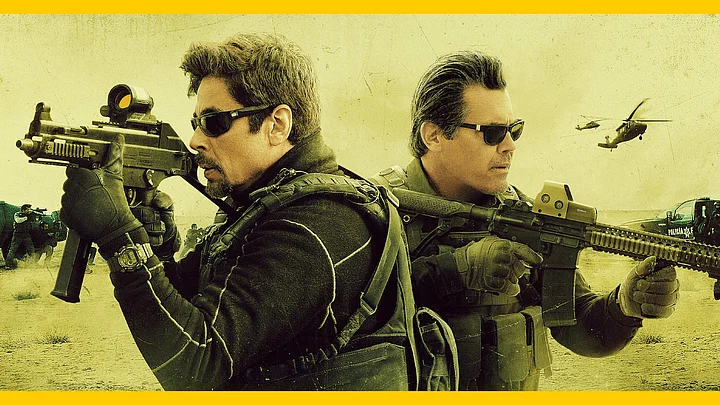The sequel of Sicario tries everything to sound and feel like the first one. And stays right there. Denis Villeneuve’s Sicario (2015) had ample brutality of drug war, but it managed to strike a balance between beauty and dread by placing Emily Blunt’s virtuous FBI agent Kate Macer in the middle of the action. Her bottled despondency provided the anchor for the tale of drugs, blood and bullets. Both Villeneuve and Blunt are absent in the sequel, so is the scope of vulnerability, and a certain magnificence.
Josh Brolin’s federal agent Matt Graver and Benicio del Toro’s Alejandro return from the original to another familiar territory, planting themselves in lethal situations at the US-Mexico border. But for most part, their movement on the screen is so foreseeable that it sucks out the air of uncertainty from the proceedings.
The story concerns the planned kidnapping of a Mexican drug lord’s teenage daughter which according to the US government will kickstart a war between two major cartels in the neighbouring country. Since sequels have the predicament of expanding on the original, drug trafficking amplifies to human trafficking, and a lot of misplaced supremacist behaviour on the part of Uncle Sam.
Fear of the non-white colours the narrative from the very start. There’s zero attempt made to understand what’s going on at the other side of the border - you don’t even see patrolling agents. Graver is allowed to speed through the checkpoint, ‘because he is special’. Dozens of Mexican police officers get shot without even a single visible face, because they’re simply collateral damage.
Only two Mexican origin characters have some screen space, but even they get shoehorned into clichés. One is Mexican-American boy Miguel (Elijah Rodriguez) who after much deliberation is shown to embrace crime as all racist stereotypes would want him to do.
The other is Isabel Reyes (an excellent Isabela Moner), the drug lord’s daughter who starts off as a privileged brat with much fire, but later withers completely because the movie doesn’t let her flourish or rise above being the passive female victim. Later, Alejandro becomes her protector because she reminds him of his dead daughter. But this reflects a strange amnesia on the movie’s still-building lore, because we have witnessed Alejandro killing two kids of a cartel boss in cold blood in the earlier film.
Taylor Sheridan who also wrote the first one has returned with more barbarity and a brutal display of tone-deafness. Whatever humanity the original had has vanished into a blatant fantasy of violence and a fear of the other. The film feels specifically irresponsible at a time when immigrant crisis and border issues are dominating headlines across the world. The xenophobic attitude is so rampant that it even conflates Islamic terrorism, drug cartels and migrants into a deadly cocktail of myopia and supremacism.
Sicario: Day of the Soldado is steered by Italian director Stefano Sollima, and he apes Villeneuve’s cinematic choices without actually understanding what went behind them. Since Sollima is a seasoned man in gritty crime dramas, he brings a certain verve in how he portrays the way guns are operated, he even lets certain moments play out longer, patiently piling up stakes, and the camera more often than not, takes a roundabout perspective.
But when this savagery gets accompanied by a wannabe Jóhann Jóhannsson (what a great loss!) score that drones on and on, we get a nihilistic racist environment that will put a wide smile on the face of the Trump administration. There’s no scope for doubt, because the film can’t get enough of the destruction its trigger-happy men are capable of.
Films can be cold and cynical, if the politics at their disposal have something substantial to say. Sollima’s film talks about a specific place on our planet by keeping the actual politics at bay, and indulges in violence that has absolutely nothing to say. The final moments have such ludicrous twists, it’s as if the film is yelling out at the viewer to remind him/her of how callous it honestly is.
